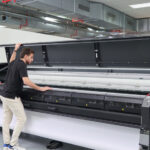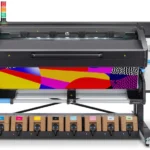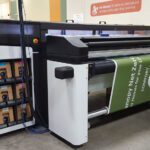The future of print quality control is a topic of great interest as the printing industry evolves with technological advancements. As we dive into the intricacies of this subject, let’s explore how these changes are shaping the landscape of print quality control.

The Importance of Print Quality Control
Print quality control is essential in ensuring that printed materials meet the desired standards. It involves monitoring and adjusting the printing process to achieve consistent and high-quality results. The future of print quality control promises even more sophisticated methods to maintain these standards.
Technological Advancements in Printing
With the advent of digital printing, there is a shift towards more efficient and precise quality control techniques. Technologies like AI and machine learning are playing a crucial role in this transformation, enabling automated adjustments and real-time monitoring.
AI and Machine Learning in Quality Control
AI and machine learning are at the forefront of innovation in print quality control. These technologies allow for predictive maintenance, error detection, and process optimization, ensuring that the final product is flawless.
Impact of Automation on Print Quality
Automation is revolutionizing the printing industry by reducing manual intervention and enhancing accuracy. Automated systems can swiftly identify defects and make necessary corrections, reducing waste and improving efficiency.
Automated Inspection Systems
Automated inspection systems use sensors and cameras to detect irregularities in print jobs. These systems can identify color variations, misalignments, and other defects that may affect the quality of the finished product.
Real-Time Monitoring and Feedback
Real-time monitoring systems provide instant feedback, allowing operators to make on-the-fly adjustments. This capability helps in maintaining consistent quality throughout the print run.
Sustainability and Print Quality Control
Sustainability is becoming a key consideration in print quality control. The industry is moving towards eco-friendly practices that not only ensure high-quality prints but also reduce environmental impact.
Eco-Friendly Printing Practices
Eco-friendly printing practices involve using biodegradable materials and energy-efficient processes. These practices align with the growing demand for sustainable printing solutions.
Learn more about biodegradable materials in printing.
Reducing Waste in Printing
Advanced quality control systems help in minimizing waste by detecting errors early in the process. This proactive approach ensures that resources are used efficiently and that defective prints are minimized.
The Role of Data in Print Quality Control
Data is becoming increasingly important in print quality control. By analyzing data from various stages of the printing process, companies can identify trends and make informed decisions to improve quality.
Data Analytics and Process Optimization
Data analytics helps in understanding the root causes of quality issues and optimizing the printing process. This approach leads to better decision-making and improved print quality.
Explore the role of AI in print job optimization.
Predictive Maintenance in Printing
Predictive maintenance uses data to anticipate equipment failures and schedule maintenance proactively. This strategy reduces downtime and ensures that printing equipment operates at optimal levels.
The Future of Digital Printing Quality Control
As digital printing technology advances, the future of print quality control will likely see even more integration with digital solutions. The focus will be on enhancing precision and reducing errors.
Interactive Packaging Trends
The rise of interactive packaging is influencing print quality control by introducing new challenges and opportunities. Quality control systems must adapt to these trends to ensure that interactive elements are flawlessly integrated.
Read about the latest interactive packaging trends.
3D Printing and Quality Control
3D printing is another area where quality control is evolving. The unique nature of 3D printed objects requires specialized quality control measures to ensure accuracy and consistency.
Discover more about the impact of 3D printing on manufacturing.
Challenges in Print Quality Control
Despite advancements, there are challenges that the industry must address. These include keeping up with technological changes, managing costs, and ensuring that quality control systems are scalable.
Adapting to Technological Changes
Rapid technological advancements require companies to continuously update their quality control systems. Staying ahead of these changes is crucial for maintaining a competitive edge.
Scalability of Quality Control Systems
As businesses grow, their quality control systems must be able to scale accordingly. Ensuring scalability is essential for maintaining consistent quality across larger production volumes.
Conclusion: The Bright Future of Print Quality Control
The future of print quality control is promising, with numerous opportunities for innovation and improvement. By embracing new technologies and sustainable practices, the industry can achieve higher standards of quality and efficiency.
For a broader view on the future of printing, visit Smithers.

FAQs
What is the role of AI in print quality control?
AI plays a significant role in print quality control by enabling predictive maintenance, error detection, and process optimization, leading to improved print quality.
How does sustainability impact print quality control?
Sustainability in print quality control involves using eco-friendly practices and reducing waste, which aligns with the demand for environmentally responsible printing solutions.
What challenges does the print quality control industry face?
The industry faces challenges such as adapting to rapid technological changes, managing costs, and ensuring the scalability of quality control systems.
This article contains affiliate links. We may earn a commission at no extra cost to you.





